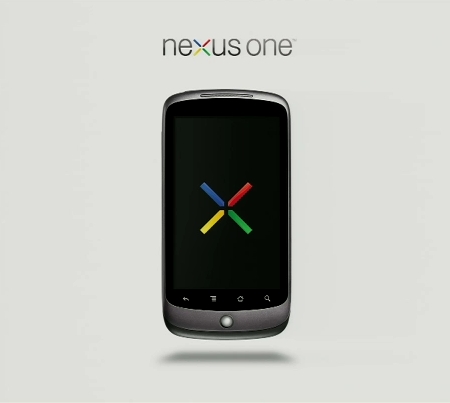
For the past two years, rumors have been swirling around the Internet regarding a potential attempt by Google to compete in the cell phone industry. Today, the monolithic company has entered the ring with its new product, the Nexus One smartphone superphone. You can read more about the new phone by visiting Gizmodo's succinct coverage page.
I spent a good portion of the afternoon today watching a live feed of Google's official presentation of the Nexus One. The phone is certainly faster, prettier, and boasts a number of new features, but I hesitate to agree with its manufacturers that the Nexus One -- "the Google phone" -- would be the smartphone to blow away the competition. The Google representatives at the event continued to emphasize the vibrant ecosystem that exists between Google, its phone application producers, and its app-store customers, but it's really nothing new considering Google's first venture into the phone sector with the company's application of its Android operating system to the HTC Dream (commonly known as the G1).
Many of the circulated rumors a few years ago focused on the implementation of the Google Voice service into a Google-produced cell phone, which would allow for free calls (therefore eliminating the necessity of paying for a yearly phone service). Back in March, the New York Times covered the threat of the Voice service in its article, Google's Free Phone Manager Could Threaten a Variety of Services , where Phil Wolff (editor of Skype Journal) states:
I would consider Google to have the potential to change the rules of the game because of their ability to bring all kinds of people into their new tools from their existing tools.
The potential for Google to change the rules of an entire industry is what most people expected from the Nexus One. However, Google made little surprises this afternoon, and this absence of novelty seems to have spurred a much different set of questions, away from new features and pricing schemes, in the question-and-answer session after the presentation.
In the Q&A session, a major concern of the audience centered on the difference between Google as a company and Google as a service. Mario Queiroz stated during the presentation that anyone who visits Google.com is a Google customer. However, Siva Vaidhyanathan argues in his CMS lecture, "The Googlization of Everything" (you can listen to the podcast here) that we are actually Google's users and hence product, instead of the company's customers. We produce information for Google's services and algorithms, while at the same time we interact with Google mainly in a non-monetary relationship (in that we do not spend money on most of Google's services and even in some instances are instead paid).
The concern of the audience, then, seemed to point out that with the Nexus One, Google is now attempting to act as a retailer. Google makes an effort to argue that they are not the manufacturer of the Google Phone hardware and instead are only the distributor of it. But this relationship between producer, consumer, and distributor is beginning to shape the web ecosystem in a new way.
The Nexus One's motto, if you visit the Google.com/phone webpage, is "Web meets phone." But I would argue that Google's strategy is instead pushing their phone to meet the Web. If we consider the motto, Google has already put the Web -- especially the Google-mediated Web -- into the G1 and its brethren. So what do I mean by drawing an antithesis with "Phone meets Web"? In the past, Google has made its services and Android system available through cell phone providers' phones. However, with the Nexus One, Google is attempting to push a phone under the guise of the Google brand to encapsulate its existent services. The previous Android-utilizing phones were associated with Google, but were not emphasized as Google-sponsored phones. However, now that Google is marketing the Nexus One as its own product, it is creating a new relationship with the customers who buy the phone. In its most basic form, Google is the producer and its customers are the consumer. But as I mentioned previously, Google is trying to avoid being associated at the phone's makers, thereby identifying the company as the phone's distributor. The company is distancing itself from the product but maintaining a relationship with the phone, hence drawing in Google loyalists or general users that trust in the Google brand.
This distributor identity has already appeared across the Web in many forms. For example, take Hulu as a case study: Hulu is maintained by a partnership of large television studios, but avoids direct association with those companies (eg., NBC) by sustaining the Hulu name. Therefore, users of Hulu associate the content available on the website with Hulu instead of television networks. Differently, though, Google occupies both spaces: with the Nexus One, it acts as a distributor of the phone, but as a monopolizing company (with the many pre-phone services that people associate with Google) Google still acts as the producer of those services. The problem, therefore, derives from the conflation of Google as both maker and deliverer. This distinction is important, though, because it affects how Google's users/customers/products associate with the company, which subsequently affects user loyalty.




